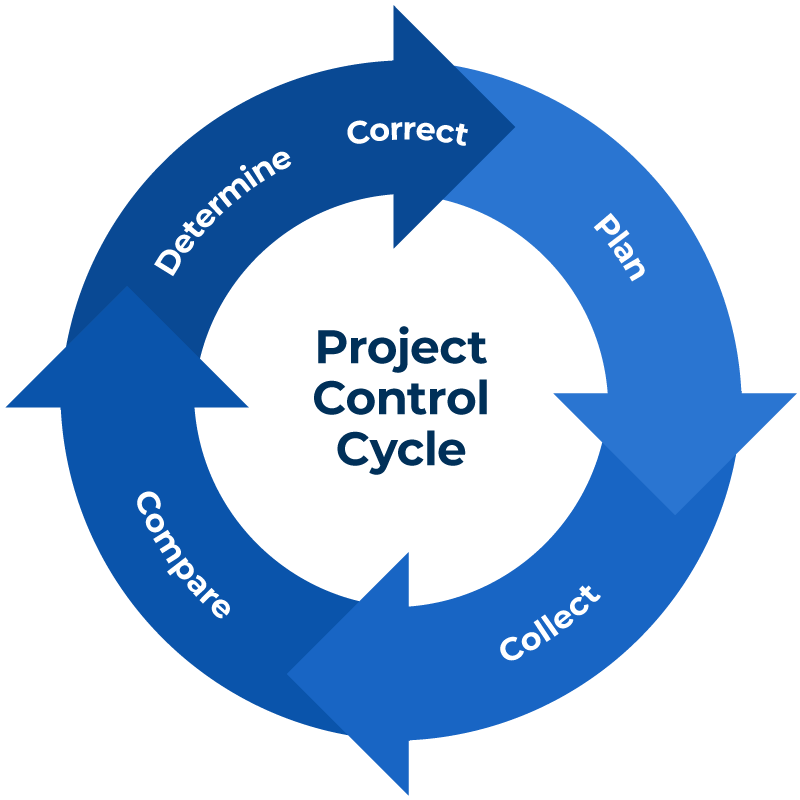Managing a project is no small feat. Whether it’s constructing a building, launching a new product, or implementing infrastructure upgrades, keeping the project on track, within budget, and aligned with strategic goals requires robust controls. The insights shared on vertexeng.com emphasize that effective project controls are the backbone of successful project management, ensuring every detail is monitored and optimized.
What Are Project Controls?
At its core, project controls involve planning, monitoring, and managing all aspects of a project to ensure successful completion. These controls encompass budget tracking, schedule management, risk analysis, and quality assurance, creating a comprehensive framework for achieving project goals.
Fun Fact: Did you know that the Great Pyramid of Giza was an ancient engineering marvel that likely involved one of history’s first uses of project controls? Historians believe workers tracked materials, time, and labor to meet their colossal deadline.
In today’s fast-paced industries, effective project controls are essential to keep up with complex demands and deliver reliable outcomes.
The Role of Project Controls in Decision-Making

Project controls provide critical data and insights, allowing project managers to make informed decisions. From identifying potential risks to optimizing resource allocation, these tools ensure that no stone is left unturned.
Key Benefits of Data-Driven Decision-Making:
- Risk Mitigation: Predict and address issues before they escalate.
- Efficiency: Streamline processes and eliminate waste.
- Accountability: Ensure all team members are aligned with project goals.
Integrating project controls into decision-making can significantly boost the odds of project success.
Fun Fact: The Connection Between Space Exploration and Project Controls: NASA is a pioneer in using advanced project controls. When planning space missions, every variable—from fuel consumption to astronaut safety—is meticulously monitored. Without such controls, groundbreaking missions like landing on the moon or exploring Mars would be nearly impossible.
This same level of precision can be applied to construction, engineering, and other industries, ensuring projects are executed flawlessly.
Common Challenges and How Project Controls Solve Them
No project is without its hurdles. From cost overruns to unexpected delays, challenges can derail even the most well-planned ventures. Effective project controls serve as a safety net, helping teams navigate and overcome these obstacles.
Top Challenges Addressed by Project Controls:
- Budget Overruns: Detailed cost tracking keeps expenses in check.
- Timeline Delays: Advanced scheduling tools ensure tasks are completed on time.
- Scope Creep: Clear documentation and regular reviews prevent scope changes from spiraling out of control.
By addressing these challenges head-on, project controls safeguard against unnecessary setbacks.
The Role of Comprehensive Remodeling in Project Success
Incorporating project controls becomes even more critical during complex undertakings like full-home remodeling. These large-scale projects require meticulous planning, from budgeting and timeline management to ensuring each design element aligns with the homeowner’s vision. We learn at jdc build construction & remodeling of san diego site, how teams specializing in whole-home transformations excel at blending creativity with precision, addressing every detail to deliver a cohesive, stunning result. By integrating robust project controls, they can navigate the challenges of remodeling seamlessly, ensuring the final outcome exceeds expectations while staying on time and within budget.
The Human Element in Project Controls
While tools and technology are essential, project controls are ultimately driven by skilled professionals who interpret data, make adjustments, and guide teams. Their expertise turns raw data into actionable insights, keeping projects on course.
Fun Fact: The Panama Canal, completed in 1914, required exceptional human oversight and project controls. Despite numerous challenges, it became one of the world’s greatest engineering achievements.
Modern project controllers combine analytical skills with communication and leadership abilities, making them indispensable to any project.
Why Every Project Needs Strong Controls

A well-implemented project control system is more than just a checklist—it’s the cornerstone of success. It provides a roadmap for teams to follow, fosters accountability, and ensures stakeholders remain confident in the project’s progress.
Whether you’re managing a small renovation or a multi-million-dollar infrastructure project, integrating project controls into your strategy is the smartest move you can make. With the right framework in place, you’ll not only meet expectations but exceed them, turning even the most ambitious goals into reality.
Take charge of your next project by prioritizing effective controls—it’s the key to turning complexity into success.
Also Read: From Vision to Reality: Expert Solutions for Construction Projects.
